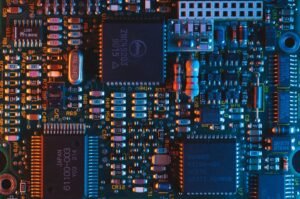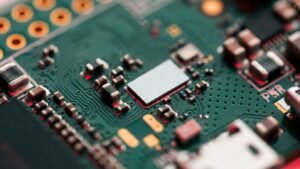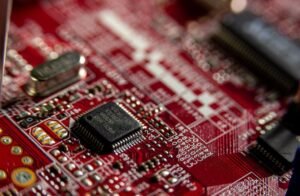AI Application Landscape
Artificial Intelligence (AI) has become an increasingly prominent and influential field in today’s technological landscape. From voice assistants to autonomous vehicles, AI applications are transforming various industries and sectors, revolutionizing the way we live and work.
Key Takeaways
- The AI application landscape is diverse and spans across multiple industries.
- AI is revolutionizing various sectors, including healthcare, finance, and transportation.
- Technologies like machine learning, natural language processing, and computer vision underpin AI applications.
- Data is crucial for training AI models and achieving accurate results.
AI finds applications in numerous fields, such as healthcare, finance, transportation, and manufacturing. In healthcare, AI is being utilized to diagnose diseases, detect patterns, and develop personalized treatment plans. In finance, AI algorithms are used for fraud detection, algorithmic trading, and customer service. Moreover, in transportation, AI enables autonomous vehicles, optimizing traffic flow, and enhancing passenger safety.
AI has the potential to disrupt traditional industries and revolutionize the way we work and live.
AI Applications in Healthcare
In the healthcare sector, AI applications are wide-ranging. From diagnosing medical conditions to improving patient outcomes, AI is transforming the delivery of healthcare services. AI-powered chatbots provide real-time assistance and personalized medical recommendations, while machine learning algorithms analyze patient data to predict disease progression and identify potential risks.
Table 1: Examples of AI Applications in Healthcare
| Application | Description |
|---|---|
| Disease Diagnosis | AI algorithms analyze medical images and patient data to assist in diagnosing diseases accurately and efficiently. |
| Drug Discovery | AI systems analyze vast amounts of data to identify potential therapeutic targets and accelerate the drug discovery process. |
| Virtual Assistants | AI-powered chatbots provide real-time assistance, answer patient queries, and offer medical recommendations. |
AI advancements in healthcare have the potential to greatly improve patient care and outcomes.
AI Applications in Finance
In the financial industry, AI is transforming various processes, including fraud detection, algorithmic trading, and customer service. Machine learning algorithms analyze patterns in financial data to identify fraudulent activities and enhance security measures. Moreover, AI-powered trading systems use real-time market data and historical trends to make informed investment decisions.
Table 2: AI Applications in Finance
| Application | Description |
|---|---|
| Fraud Detection | AI algorithms analyze financial data to identify patterns and detect fraudulent activities. |
| Algorithmic Trading | AI systems use real-time market data and historical trends to automate trading decisions and optimize investment strategies. |
| Customer Service | AI-powered chatbots provide personalized support, answer customer queries, and offer financial advice. |
AI-driven systems streamline financial processes, improve security, and enhance customer experience.
AI Applications in Transportation
The transportation sector is experiencing significant transformations through AI applications. Autonomous vehicles powered by AI technologies are being developed to enhance road safety and optimize traffic flow. AI algorithms analyze real-time data from sensors and cameras to make informed decisions and adapt to changing traffic conditions.
Table 3: Use Cases of AI in Transportation
| Application | Description |
|---|---|
| Autonomous Vehicles | AI technologies enable self-driving cars to navigate roads, avoiding accidents and improving transportation efficiency. |
| Traffic Optimization | AI algorithms analyze real-time traffic data to optimize traffic flow, reduce congestion, and improve commuting times. |
| Transportation Planning | AI systems help in predicting travel demand, optimizing routes, and improving public transportation services. |
AI-based solutions in transportation have the potential to revolutionize the way we commute, reducing accidents and improving efficiency.
The AI application landscape is vast, and its potential impact is still expanding. From healthcare to finance to transportation, AI is reshaping industries and pushing the boundaries of technological advancements. With emerging technologies like machine learning, natural language processing, and computer vision driving AI applications, the possibilities are limitless.
As AI continues to evolve, it is essential to harness its capabilities responsibly, considering ethical considerations, privacy concerns, and potential biases. With appropriate safeguards in place, AI has the power to revolutionize our lives and pave the way for a future driven by intelligent technologies.

Common Misconceptions
1. AI is all about robots
One common misconception about AI is that it is solely about robots. While robots are one application of AI, AI encompasses a much broader landscape. AI refers to the development of computer systems that can perform tasks that usually require human intelligence. This can include things like natural language processing, machine learning, and computer vision.
- AI involves much more than just robots.
- AI encompasses various techniques and technologies.
- AI can be applied to a wide range of industries.
2. AI will replace human jobs
Another misconception is that AI will replace human jobs entirely. While AI has the potential to automate certain tasks and streamline processes, it does not necessarily mean that it will replace humans in the workforce altogether. AI is typically designed to augment human capabilities and improve efficiency, not completely replace human workers.
- AI can enhance productivity and efficiency.
- AI often requires human input and oversight.
- AI can create new opportunities and job roles.
3. AI is infallible and always accurate
Some people believe that AI is infallible and always produces accurate results. However, like any technology, AI is not immune to errors and limitations. AI systems heavily rely on the quality and quantity of data they are trained on, which can introduce biases and inaccuracies. Additionally, AI algorithms can sometimes make mistakes or misinterpret information.
- AI systems are only as good as the data they are trained on.
- AI systems can sometimes produce incorrect or biased results.
- AI requires regular monitoring and evaluation.
4. AI is too complex and inaccessible
Many people perceive AI as too complex and inaccessible, believing that only experts can understand and work with it. While AI does involve advanced concepts and techniques, there are now user-friendly tools and platforms that make AI more accessible to non-experts. These tools enable individuals and businesses to leverage AI capabilities without needing extensive technical knowledge.
- AI tools are becoming more user-friendly and accessible.
- AI can be learned and applied by individuals without a technical background.
- AI platforms provide a range of pre-built models and solutions.
5. AI is a threat to humanity
Some individuals have concerns that AI poses a threat to humanity. This misconception often stems from fictional portrayals of AI in movies and literature. While AI does present certain challenges and risks, the development and deployment of AI systems are typically guided by ethical frameworks and regulations. Responsible development practices and proper oversight can help mitigate potential risks associated with AI.
- AI development is guided by ethical considerations and regulations.
- AI systems have limitations and require proper oversight.
- AI can be used to address societal challenges and improve lives.

AI Investments by Industry in 2021
According to recent research, the AI market has seen significant investments across various industries in 2021. The following table illustrates the amount invested in AI technologies by different sectors.
| Industry | Investment (in billions USD) |
|---|---|
| Healthcare | 24.8 |
| Finance | 18.2 |
| Retail | 13.7 |
| Manufacturing | 10.5 |
| Transportation | 8.9 |
Top AI Applications in Education
Artificial Intelligence has revolutionized the education sector, enabling innovative approaches to teaching and personalized learning experiences. The table below highlights the top AI applications in education and their respective benefits.
| AI Application | Benefits |
|---|---|
| Intelligent Tutoring Systems (ITS) | Personalized learning, adaptive feedback |
| Automated Grading | Efficient evaluation, reduced teacher workload |
| Virtual Assistants | 24/7 student support, instant answers |
| Smart Content | Interactive lessons, tailored curriculum |
| Predictive Analytics | Early intervention, support for at-risk students |
AI Adoption by Country
AI technology adoption varies across different countries, influenced by factors such as infrastructure, regulatory environment, and investment. The table below illustrates the top countries embracing AI.
| Country | AI Adoption Index |
|---|---|
| United States | 85 |
| China | 75 |
| United Kingdom | 70 |
| Germany | 65 |
| Canada | 60 |
AI Applications in Customer Service
The integration of AI technologies in customer service has enhanced efficiency and customer satisfaction. Here are some notable AI applications in this field.
| AI Application | Benefits |
|---|---|
| Chatbots | 24/7 support, instant responses |
| Virtual Assistants | Personalized service, quick issue resolution |
| Speech Recognition | Efficient call routing, improved call quality |
| Recommendation Engines | Personalized product suggestions, upselling |
| Sentiment Analysis | Customer feedback analysis, proactive issue resolution |
AI in Autonomous Vehicles
The advancement of AI has paved the way for self-driving autonomous vehicles, revolutionizing the transportation industry. The following table showcases the key AI technologies used in autonomous vehicles.
| AI Technology | Applications |
|---|---|
| Computer Vision | Lane detection, object recognition |
| Natural Language Processing (NLP) | Voice commands, human-vehicle interaction |
| Machine Learning | Driving behavior prediction, decision-making |
| Sensor Fusion | Environmental perception, obstacle avoidance |
| Deep Reinforcement Learning | Autonomous navigation, adaptive behavior |
AI in Cybersecurity
Cybersecurity is an area where AI plays a vital role in identifying and preventing cyber threats. The table below illustrates various applications of AI in cybersecurity.
| AI Application | Function |
|---|---|
| Behavioral Analytics | Anomaly detection, identifying patterns |
| Automated Threat Intelligence | Real-time threat monitoring, automated response |
| User and Entity Behavior Analytics (UEBA) | Identifying insider threats, user profiling |
| Vulnerability Assessment | Scanning, patch management |
| Adaptive Authentication | Multi-factor authentication, risk-based access control |
AI in Content Creation
Artificial intelligence has increasingly been used in content creation, offering efficient and innovative ways to generate and optimize various media types. The table below highlights AI applications in content creation.
| AI Application | Function |
|---|---|
| Automated Writing | Generating articles, reports, and summaries |
| Video Editing | Automated video montage, scene selection |
| Image Recognition | Tagging, object recognition |
| Music Composition | Generating melodies, harmonies, and arrangements |
| Speech Synthesis | Creating human-like voices, text-to-speech |
AI Applications in Agriculture
AI has found diverse applications in the agricultural sector, aiding precision farming and enabling optimal resource allocation. Here is a breakdown of AI applications in agriculture.
| AI Application | Function |
|---|---|
| Remote Sensing | Crop health assessment, yield prediction |
| Plant Disease Recognition | Early disease detection, targeted treatment |
| Robotics and Automation | Harvesting, weeding, and seeding |
| Smart Irrigation Systems | Optimal water usage, water stress detection |
| Crop Management | Optimal planting density, fertilization recommendations |
AI in Healthcare
AI applications in healthcare have transformed medical practices, aiding diagnosis, treatment, and enhancing patient care. The table below showcases different AI applications in the healthcare industry.
| AI Application | Function |
|---|---|
| Medical Imaging Analysis | Detection of abnormalities, lesion segmentation |
| Personalized Medicine | Genomics analysis, targeted therapies |
| Virtual Nursing Assistants | Remote patient monitoring, medication reminders |
| Drug Discovery | Identifying potential drug candidates, drug repurposing |
| Healthcare Chatbots | Symptom checking, triage assistance |
As the applications of AI continue to expand, its impact across industries is becoming increasingly evident. From healthcare and education to cybersecurity and agriculture, AI has the potential to revolutionize various sectors. Leveraging AI technologies brings forth numerous benefits such as improved efficiency, personalized experiences, and advanced data analysis. With continuous advancements, the future of AI promises even greater strides in innovation and optimization.
Frequently Asked Questions
What is the AI application landscape?
The AI application landscape refers to the various applications and uses of artificial intelligence technology across different industries and sectors. It includes areas such as healthcare, finance, education, transportation, and more.
How is artificial intelligence being used in healthcare?
Artificial intelligence is being utilized in healthcare to improve diagnosis accuracy, monitor patient health, and personalize treatment plans. AI is also being used for drug discovery, clinical decision support, and virtual nursing assistants.
What role does AI play in the finance industry?
In the finance industry, AI is employed for tasks like fraud detection, algorithmic trading, customer service chatbots, and risk assessment. It helps in automating processes, detecting anomalies, and making data-driven predictions for portfolio management.
How is artificial intelligence transforming the education sector?
AI is transforming education by enabling personalized learning experiences, intelligent tutoring systems, and automated grading systems. It also aids in the development of smart content, adaptive learning platforms, and virtual reality-based simulations for better student engagement.
What is the impact of AI on transportation?
AI has a significant impact on transportation through the development of self-driving cars, intelligent traffic management systems, and predictive maintenance of vehicles. It also improves logistics and supply chain management, optimizing route planning and reducing costs.
How does AI benefit the retail industry?
In retail, AI is used for demand forecasting, inventory optimization, personalized marketing, and chatbot-driven customer service. It enhances the shopping experience by offering recommendations, virtual trials, and automated checkouts.
What are some AI applications in the energy sector?
The energy sector leverages AI for energy grid optimization, predictive maintenance of infrastructure, and demand response management. AI also enables the implementation of smart meters, energy consumption analysis, and renewable energy forecasting.
How is AI used in the agriculture industry?
In agriculture, AI is utilized for crop monitoring, pest detection, yield prediction, and irrigation optimization. It helps in precision farming, analyzing sensor data, and providing actionable insights for maximizing productivity and sustainability.
What are the potential uses of AI in manufacturing?
AI is being used in manufacturing for quality control, predictive maintenance, robotic automation, and supply chain optimization. It enables smart factories with self-monitoring and decision-making capabilities for seamless production processes.
How is artificial intelligence applied in the entertainment industry?
In the entertainment industry, AI is used for content recommendation, video and audio analysis, and virtual reality experiences. It aids in personalized streaming services, automated video editing, and creating immersive gaming environments.





